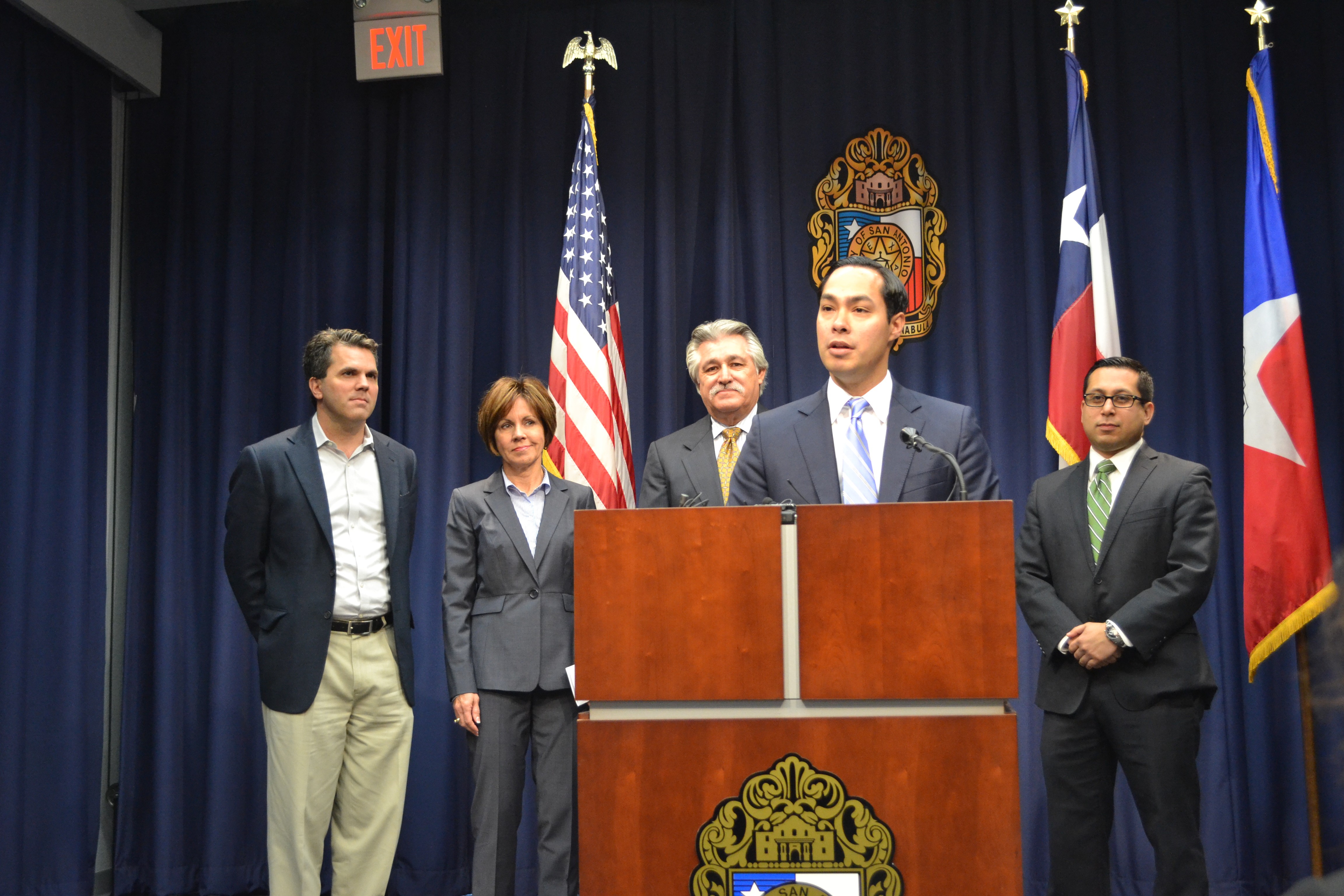Mayor Castro says Google Fiber could find its way to San Antonio soon. Photo by Mary Tuma
"San Antonians deserve Internet speeds that are faster than the Third World," said Castro.
In 2010, SA and 1,000 other cities applied to be part of the network. Kansas City, Austin and Provo, Utah have all partnered with Google to bring the high speed network to their residents. While Google has shown interest in San Antonio and the other eight metro areas (Phoenix, Portland, San Jose, Atlanta, Nashville, Raleigh-Durham, Charlotte and Salt Lake City), the deal isn't a definite yet and there remain bureaucratic and technological barriers, like access to right-of-ways, securing permits, identifying existing infrastructure and making sure the city is ready for the volume of construction. If everything goes smoothly, SA will know by the end of year.
Dropping some optimism on the prospect, Castro says SA has a better shot than other cities, calling San Antonio's ability to score a concrete deal with Google "unrivaled." Why? Part of the reason may be because the City-owned utility CPS Energy controls about 86 percent of the poles that allow for deployment, rather than a big broadband company, like AT&T, who pushed back hard against an attempt by Austin City Council to force them to allow Google Fiber to use the poles. Castro and Strama described CPS' majority ownership of the utility poles a definite advantage.
But the effort isn't only meant to ramp up speeds for those with slow Internet access but seeks to grant access to those that go without due to high prices. An FCC Broadband Adoption study reports that 36 percent of people who don't have broadband access cite expense as the key barrier. In Texas, only about 20 percent of low-income Texans have adopted broadband. The new Google fiber network could very well help bridge the digital divide, said Castro.
As the Current reported earlier this month, efforts to increase broadband access at public places (like schools, libraries and some hospitals) by utilizing existing underground fiber optic network from the City's utility company are underway. Restricted by Texas law, that expansion is only limited to government-funded institutions — Google fiber, on the other hand, would offers services to residents, too.
"What we've seen when Google has come into other communities is that other providers have to compete," said Castro, when the Current asked for more details on how it would help those who aren't online today.
"And so they've lowered their cost for traditional Internet access. We look forward to that because we believe this will be good for the consumer who chooses to purchase 1 gigabit speed but also, as prices go down for traditional speeds, it'll enable those who have not been able to afford it [...] to [now] pay for it because it's more affordable."
How affordable? Former state Rep. Mark Strama, who now heads Google Fiber efforts in Austin, points to Kansas City prices: residents there can get gigabit Internet for $70 month, bundle the service with TV for $120 or pay a $300 construction fee get seven years of basic broadband speed. While the network would be sized for the entire city, the question of who gets access is up to communities. "Each neighborhood controls its own destiny," said Castro.


